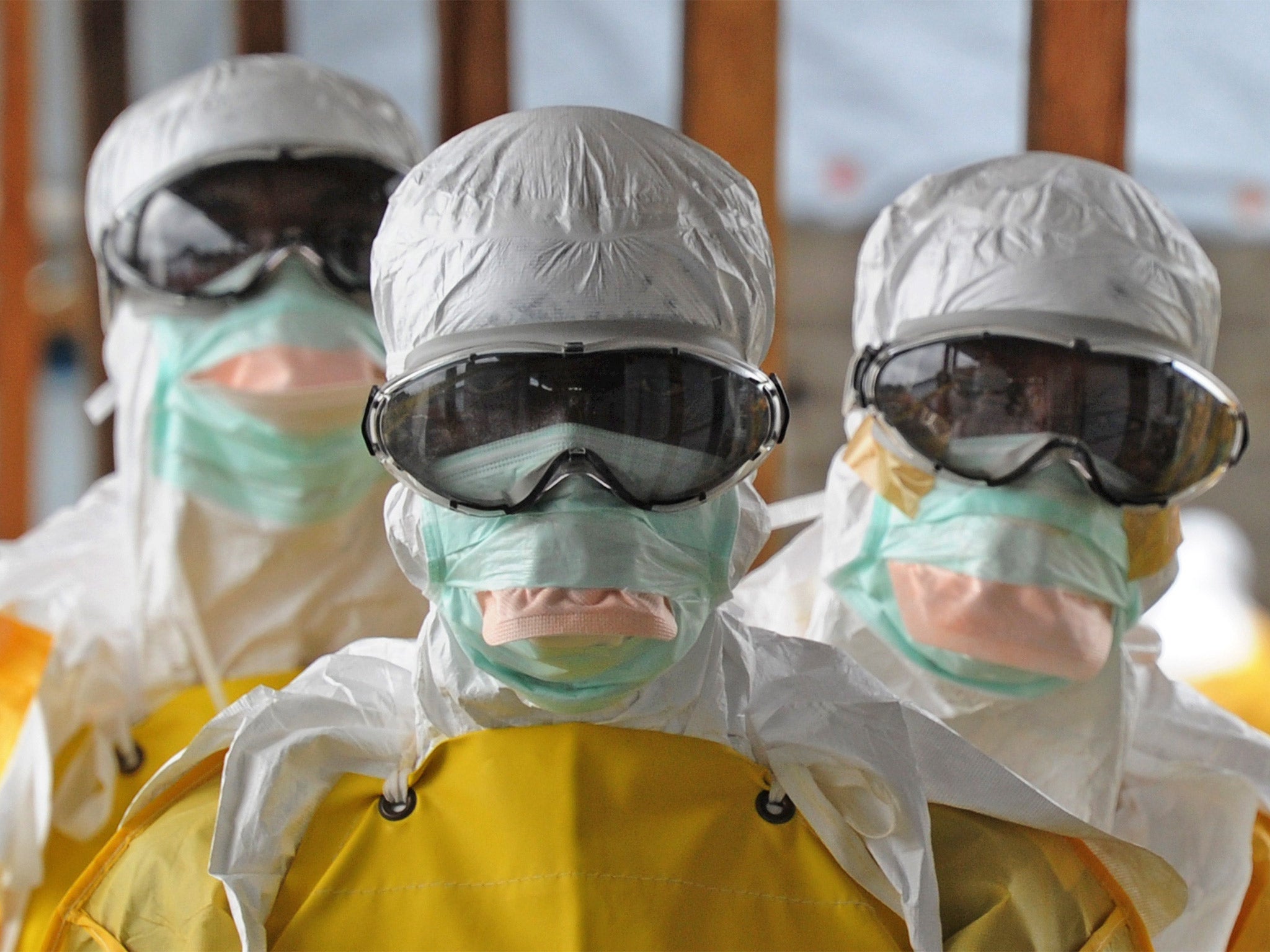Ebola: What are the symptoms and what is it? The questions you need to ask about the outbreak
More than 3,400 people in West Africa have died in the Ebola outbreak

Your support helps us to tell the story
From reproductive rights to climate change to Big Tech, The Independent is on the ground when the story is developing. Whether it's investigating the financials of Elon Musk's pro-Trump PAC or producing our latest documentary, 'The A Word', which shines a light on the American women fighting for reproductive rights, we know how important it is to parse out the facts from the messaging.
At such a critical moment in US history, we need reporters on the ground. Your donation allows us to keep sending journalists to speak to both sides of the story.
The Independent is trusted by Americans across the entire political spectrum. And unlike many other quality news outlets, we choose not to lock Americans out of our reporting and analysis with paywalls. We believe quality journalism should be available to everyone, paid for by those who can afford it.
Your support makes all the difference.The unprecedented Ebola outbreak has killed more than 3,400 people in West Africa, and a Spanish nurse has become the first person known to have contracted the virus outside of Africa.
While President Barack Obama has said the US was planning measures to screen incoming air passengers for Ebola, the World Health Organisation's European director has said the spread of the virus across Europe is "quite unavoidable."
As the outbreak of Ebola continues to spread, here is what you need to know about the disease.
What is Ebola?
Ebola is an acute viral disease, with its first known case appearing in 1976 in simultaneous outbreaks in Nzara, Sudan, and Yambuku, Democratic Republic of Congo, according to the WHO. It takes its name from the Ebola River near the latter Congolese village.
Once infected, the virus will attack the victim’s internal organs.
This then develops into vomiting, diarrhoea, rashes, impaired kidney and liver function, and in some cases, a combination of internal and external bleeding.
How is it spread?
Fruit bats are thought to be the natural hosts of the virus. Humans become infected during close contact with the blood, organs and other bodily fluids of animals harbouring the disease.
Other animals which have spread the disease in Africa include primates, monkeys, forest antelope and porcupines found ill or dead or in the rainforest.
Human-to-human infection occurs when contact is made with broken skin or mucous membranes, or with the bodily fluids of carriers. Men who have recovered from the disease can have contagious semen for up to 7 weeks.
The highly contagious nature of the disease means that areas that have come in contact with these fluids also become infected; meaning that burying a person who has died from Ebola is problematic.
How is it diagnosed?
Before Ebola can be identified as the disease affecting a person, other conditions including malaria, typhoid fever, cholera, and other haemorrhagic fevers must be ruled out.

Laboratory tests can then be used to confirm the disease, but these samples are an extreme biohazard and tests must be carried out under controlled conditions.
How is it treated?
While Ebola vaccines are being tested, none are currently available for preventative use.
There is no known cure for the disease. Patients must be treated in isolation where they are given fluids to prevent dehydration.
During outbreaks, 9 in 10 people die from the virus.
What is being done to prevent it from spreading?
The World Health Organisation has recommended those countries affected by Ebola should conduct exit screening for people with symptoms consistent with the infection.
They have also urged anyone who has come into contact with the virus not to undertake international travel, unless their journey is part of an appropriate medical evacuation.
President Barack Obama has said the US government would develop expanded screening of airline passengers for Ebola, both in the West African countries hit by the disease and the United States.
A glossary of terms regularly used in relation to the Ebola outbreak
Contact: A person who has been near or in contact with a patient carrying a disease.
Contracted: When a person has developed or acquired a disease.
Exposure: When a person has been put at risk of becoming infected after coming into contact with something or somebody which is infectious.
Screening: In terms of the Ebola outbreak, this is a process carried out to assess whether a person may be exhibiting symptoms of the virus. It can include the person filling out a questionnaire and visual observation.
Transmission: When a virus is passed on from one patient to another.
Quarantine: When a person who is thought to be at risk of infection is isolated and separated from healthy people.
Join our commenting forum
Join thought-provoking conversations, follow other Independent readers and see their replies
0Comments